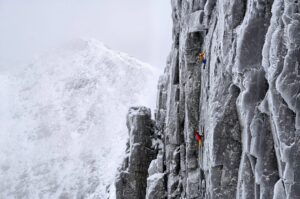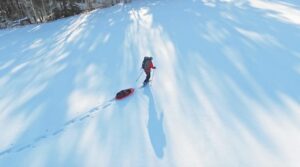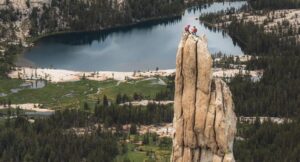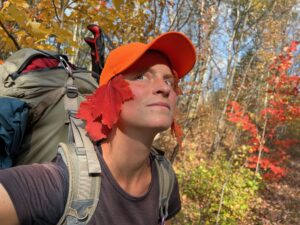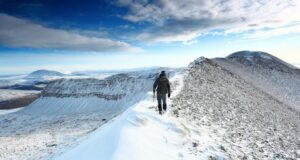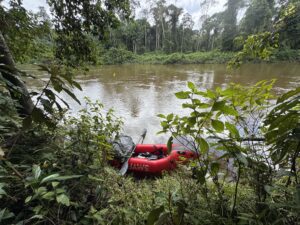When we’re not outdoors, we get our adventure fix by exploring social media and the web. Here are some of the best adventure links we’ve discovered this week.
One Photographer’s Quest to Redefine the Shark: Underwater photographer Gerardo del Villar is trying to transform the public’s perception of sharks. He’s interacted with over 40 shark species, and through his photography, he wants to capture their diversity and importance. Del Villar describes how swimming with a nurse shark in 2005 sparked his commitment to shark conservation.
Our Ancestors Walked These Trails Hundreds of Years Ago: Many ancient routes that once connected communities have fallen into disrepair, but increasingly, people are working to revitalize them. From China’s ancient Tea Horse Road in Yunnan to the Finnskogleden in Scandinavia and the Wadi Rum Trail in Jordan, these restored paths offer hikers a unique blend of natural beauty and cultural heritage.
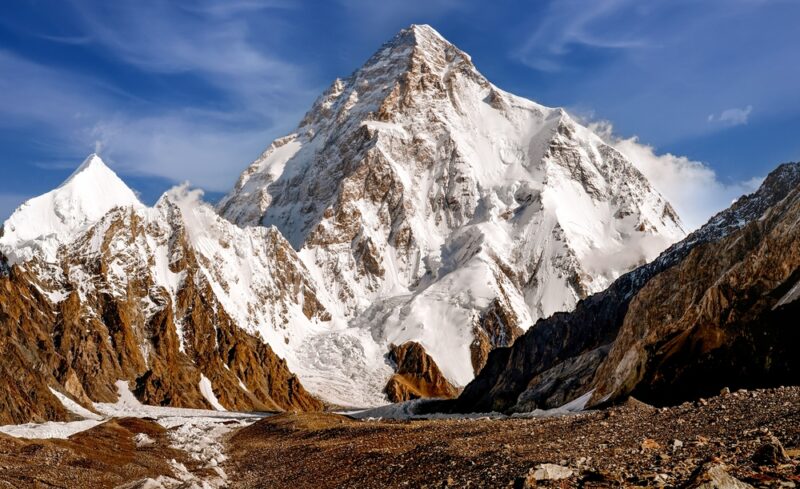
K2. Photo: Shutterstock
How K2 has changed
Is K2 Now Less Savage?: It’s often called the Savage Mountain, but K2’s reputation as the most difficult 8,000m peak may be in jeopardy. It is renowned for its technical difficulty, unpredictable weather, and high fatality rate. Historically, one death has occurred for every four successful summits.
But since 2021, the number of people summiting has rapidly increased as the guided crowds — once only on Everest — have descended on K2.
I Survived Over 12 Hours Beneath the Snow: Txema Trull recounts his harrowing experience in Argentina’s Las Leñas backcountry. After a cornice collapse triggered a massive avalanche, two meters of snow buried Trull and his partner in their tent.
As his breathing got shallower, Trull had one thought as he slipped into unconsciousness: They were going to die. His next memory is being bundled into an ambulance. He survived 12 hours until rescuers found them. Tenas was not so lucky.
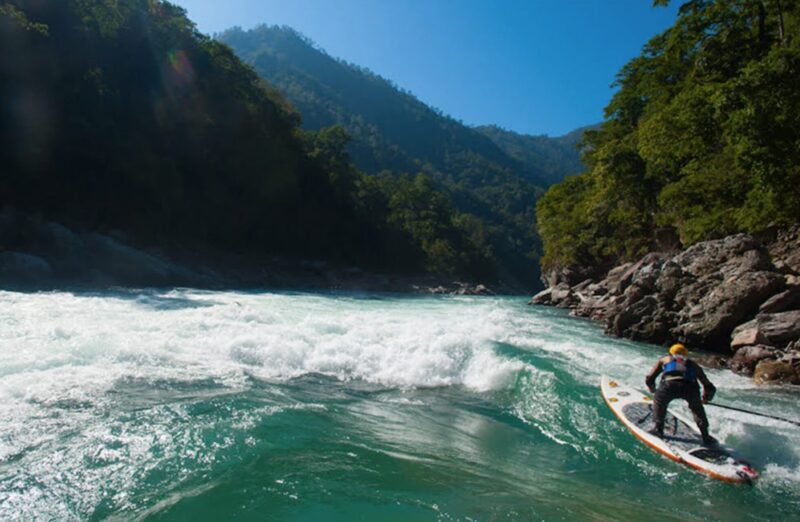
Paddleboarding the Karnali. Photo: Guy Baker
Paddling sacred rivers
Paddling the Rivers of Mount Kailash: Guy Baker recounts his 35-year mission to descend all four of Mount Kailash’s sacred rivers.
Spanning decades, his journey began in 1990 when he paddled the Indus through Pakistan’s Rondu Gorges. In 2005, he faced the narrow, high-walled canyons of the Sutlej in Tibet. He calls the Karnali in Nepal “one of the finest rivers I’ve paddled.” He descended it on three separate occasions, including once on a stand-up paddleboard.
Finally, in 2024, Baker paddled the Brahmaputra, starting with gently flowing waters on the Tibetan Plateau and culminating in monumental rapids in Arunachal Pradesh.
Beyond the Trails: Follow a group of riders as they explore Valais, Switzerland, host of the 2025 UCI Mountain Bike World Championships.
From high-altitude rides through Aletsch Arena’s glacier trails to Bellwald’s jump parks and Val d’Anniviers alpine riding, there is something for every rider.
Focusing on the positive
When Were Surfers Happiest?: The comment sections on various surfing websites paint the surfing community as a pretty unhappy lot. So Sam George wanted to figure out when surfers were the happiest.
Southern California in the 1950s stands out. That generation of surfers was changing the face of the sport, and photos suggest a dreamy, happy period. Others think peak happiness may have come in the 1960s when pop culture put surfing in the spotlight.
Is Complacency the Greatest Risk?: The Flatirons in Boulder, Colorado, feature many climbing routes. People have scrambled on them without ropes for over a century, but in the last decade, their popularity has skyrocketed. While the routes are often perceived as low-risk because of their moderate grades, there have been several fatalities and injuries.
Simon Testa analyzes data on the most popular scrambling lines and their accident and mortality risk. He questions whether familiarity is leading to complacency.

